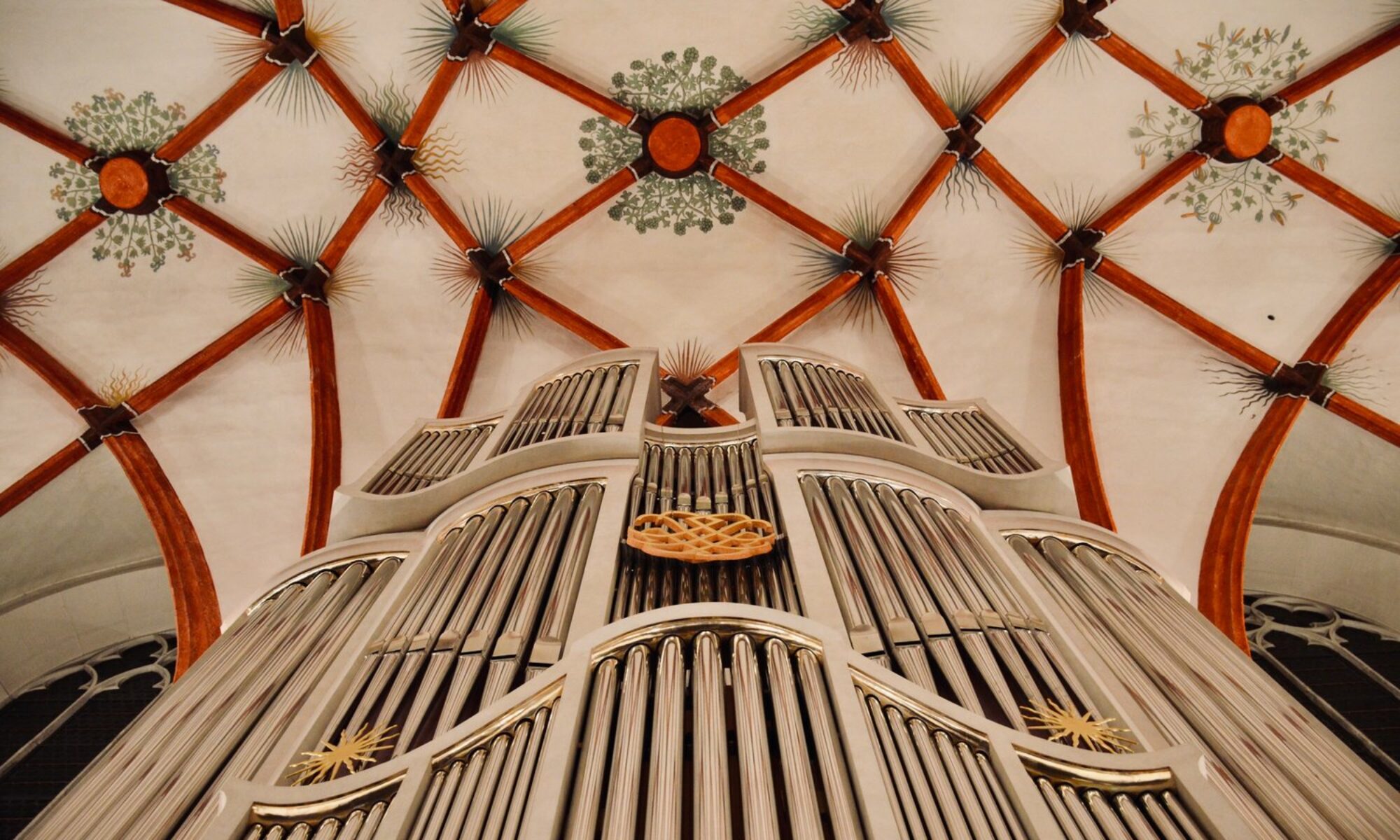Three classic typologies one has to know, to begin to understand the role of the dramatis personae in Bach’s SMP: Lamb, Isaac, Bride/Bridegroom.
In the opening choir, all elements of the Passion and its meaning are present, and neatly presented to the attentive listener in the form of three classic typological metaphors referring to Christ.
- the Paschal Lamb, sacrificial animal, slaughtered at Pesach. Its blood rescued the Israelites from the Angel of Death, ushering in the Exodus. In Christian theology this imagery is included in Christ as the Agnus Dei qui tollis peccata mundi (German choral: O Lamm Gottes unschuldig).
- Isaac, Abraham’s son, carrying the ‘wood’ for his own sacrifice (typos of Christ carrying his cross), also quoted for his willingness to comply with his F(f)ather’s command.
- the Groom, whose fate is bemoaned by the women along the road who bemoan his fate.
– These women are addressed as the ‘Daughters of Sion/Jerusalem, a reference to the friends of the girl/Bride from the Song of Songs. The allegorical reading of this Bible Book was essential to the Spirituality of the (Lutheran) Church. The Bride had a twofold reference: 1. Community of Believers (collectivum), the Church; 2. the Soul of the believer (individual).
| Come, ye daughters, help me lament, Behold! Whom? The Bridegroom. Behold him! How? Like a lamb. O lamb of God, innocent slaughtered on the stem of the cross, Behold! What? Behold his patience. always found patient, although you were despised. Behold! Where? Behold our guilt. you have borne all sin, otherwise we would have to despair. Behold Him, out of love and graciousness, Himself carrying the wood of the cross. Have mercy on us, o Jesus! | Kommt, ihr Töchter, helft mir klagen, Sehet – Wen? – den Bräutigam, Seht ihn – Wie? – als wie ein Lamm! O Lamm Gottes, unschuldig Am Stamm des Kreuzes geschlachtet, Sehet, – Was? – seht die Geduld, Allzeit erfunden geduldig, Wiewohl du warest verachtet. Seht – Wohin? – auf unsre Schuld; All Sünd hast du getragen, Sonst müßten wir verzagen. Sehet ihn aus Lieb und Huld Holz zum Kreuze [selber] tragen! Erbarm dich unser, o Jesu! |
